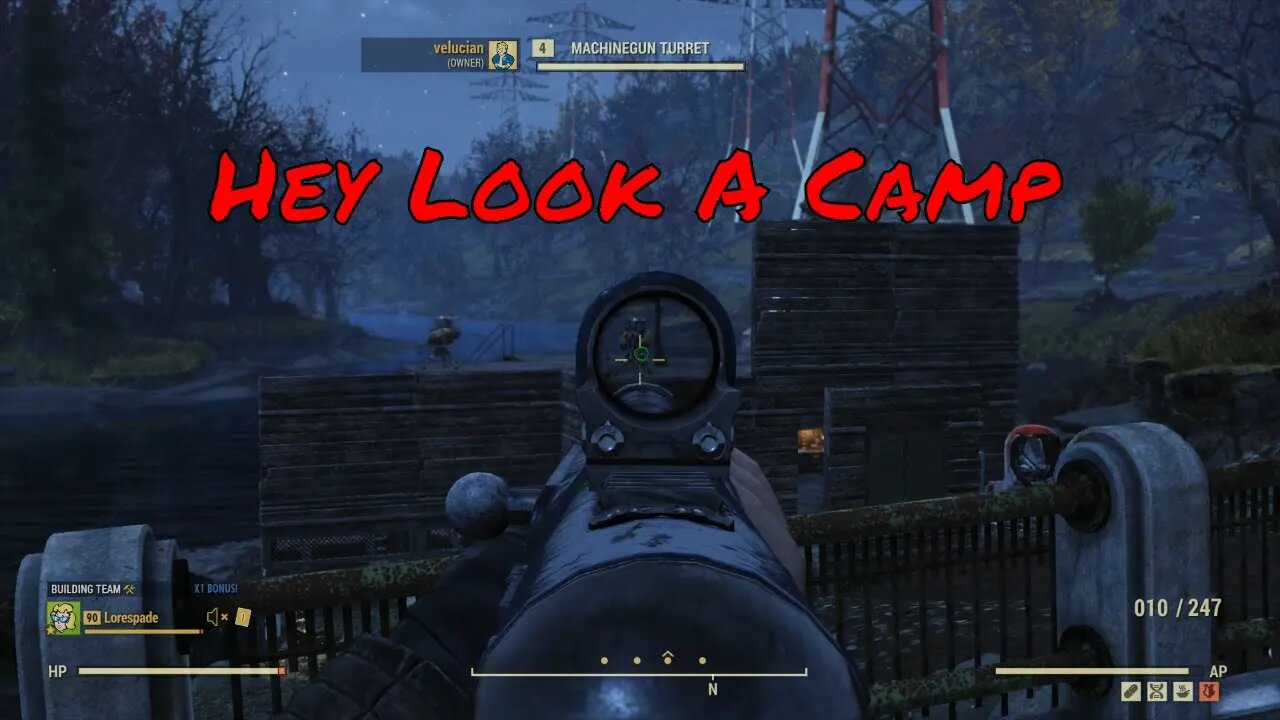Premium Only Content

Who's Fallout 76 Camp is That? Explosions
An explosion is a rapid increase in volume and release of energy in an extreme manner, usually with the generation of high temperatures and the release of gases. Supersonic explosions created by high explosives are known as detonations and travel via supersonic shock waves. Subsonic explosions are created by low explosives through a slower burning process known as deflagration.
Natural
Explosions can occur in nature due to a large influx of energy. Most natural explosions arise from volcanic or stellar processes of various sorts. Explosive volcanic eruptions occur when magma rising from below has much dissolved gas in it; the reduction of pressure as the magma rises causes the gas to bubble out of solution, resulting in a rapid increase in volume. Explosions also occur as a result of impact events and in phenomena such as hydrothermal explosions (also due to volcanic processes). Explosions can also occur outside of Earth in the universe in events such as supernovae. Explosions frequently occur during bushfires in eucalyptus forests where the volatile oils in the tree tops suddenly combust.[1]
Astronomical
Among the largest known explosions in the universe are supernovae, which result from the sudden starting or stopping of nuclear fusion gamma-ray bursts in stars, whose nature is still in some dispute. Solar flares are an example of a common explosion on the Sun, and presumably on most other stars as well. The energy source for solar flare activity comes from the tangling of magnetic field lines resulting from the rotation of the Sun's conductive plasma. Another type of large astronomical explosion occurs when a very large meteoroid or an asteroid impacts the surface of another object, such as a planet.
Chemical
The most common artificial explosives are chemical explosives, usually involving a rapid and violent oxidation reaction that produces large amounts of hot gas. Gunpowder was the first explosive to be discovered and put to use. Other notable early developments in chemical explosive technology were Frederick Augustus Abel's development of nitrocellulose in 1865 and Alfred Nobel's invention of dynamite in 1866. Chemical explosions (both intentional and accidental) are often initiated by an electric spark or flame in the presence of Oxygen. Accidental explosions may occur in fuel tanks, rocket engines, etc.
Electrical and magnetic
A high current electrical fault can create an 'electrical explosion' by forming a high energy electrical arc which rapidly vaporizes metal and insulation material. This arc flash hazard is a danger to persons working on energized switchgear. Also, excessive magnetic pressure within an ultra-strong electromagnet can cause a magnetic explosion.
Mechanical and vapor
Strictly a physical process, as opposed to chemical or nuclear, e.g., the bursting of a sealed or partially sealed container under internal pressure is often referred to as an explosion. Examples include an overheated boiler or a simple tin can of beans tossed into a fire.
Boiling liquid expanding vapor explosions are one type of mechanical explosion that can occur when a vessel containing a pressurized liquid is ruptured, causing a rapid increase in volume as the liquid evaporates. Note that the contents of the container may cause a subsequent chemical explosion, the effects of which can be dramatically more serious, such as a propane tank in the midst of a fire. In such a case, to the effects of the mechanical explosion when the tank fails are added the effects from the explosion resulting from the released (initially liquid and then almost instantaneously gaseous) propane in the presence of an ignition source. For this reason, emergency workers often differentiate between the two events.
Nuclear
Main articles: Nuclear explosion and Effects of nuclear explosions
In addition to stellar nuclear explosions, a nuclear weapon is a type of explosive weapon that derives its destructive force from nuclear fission or from a combination of fission and fusion. As a result, even a nuclear weapon with a small yield is significantly more powerful than the largest conventional explosives available, with a single weapon capable of completely destroying an entire city.
-
 15:04
15:04
Lorespade
1 year agoDeed And Shares Payout Show Weekly for Entropia Universe Oct 9th 2023
421 -
 1:28:04
1:28:04
Russell Brand
3 hours agoBREAKING: UK Troops To Ukraine | Zelensky Wants “Army Of Europe” | JD Vance SLAMS EU Tyranny – SF538
92.4K36 -
 1:46:20
1:46:20
Benny Johnson
4 hours agoPANIC: Feds FLEE DC After Mass PURGE, Fired USAID Activists EXPOSED | Trump DOMINATES Daytona 500
96.5K78 -
 1:58:43
1:58:43
The Charlie Kirk Show
2 hours agoCBS Steps In It + Hockey Brawl + Judicial Standoff | Yoo, Schlapp, BigTree | 2.17.2025
85.3K19 -
 1:01:26
1:01:26
The Dan Bongino Show
5 hours agoTrump Is Cancelling DEI And Cancel Culture (Ep. 2424) - 02/17/2025
690K1.4K -
 1:06:12
1:06:12
Timcast
4 hours agoDemocrat Swamp IMPLODES, CBS Runs DAMAGE Control For Democrats, Gets ROASTED By Elon | Timcast LIVE
127K131 -
 2:00:58
2:00:58
RealAmericasVoice
11 hours agoWAR ROOM WITH STEVE BANNON AM EDITION
104K19 -
 2:59:47
2:59:47
Wendy Bell Radio
10 hours agoAmerica Drops The Gloves
105K59 -
 1:22:27
1:22:27
Steven Crowder
5 hours agoGeorge Washington, Our First President | 3 in 3 Special
296K186 -
 1:03:57
1:03:57
Kyle Fortch
5 hours ago $1.44 earnedDJ Chill: DJing For Jelly Roll, SOLD OUT Tour, Performing at Hometown Arena | THE ONE SHEET S1E4
47.5K3